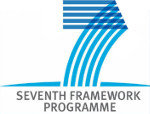Attrition in the European Child Cohort IDEFICS/I. Family: Exploring Associations Between Attrition and Body Mass Index
Langeheine, M. ; Pohlabeln, H. ; Lauria, F. ; Veidebaum, T. ; Tornaritis, M. ; Molnar, D. ; Eiben, G. ; de Henauw, S. ; Moreno, L.A. (Universidad de Zaragoza) ; Williams, G. ; Ahrens, W. ; Rach, S.
Resumen: Attrition may lead to bias in epidemiological cohorts, since participants who are healthier and have a higher social position are less likely to drop out. We investigated possible selection effects regarding key exposures and outcomes in the IDEFICS/I. Family study, a large European cohort on the etiology of overweight, obesity and related disorders during childhood and adulthood. We applied multilevel logistic regression to investigate associations of attrition with sociodemographic variables, weight status, and study compliance and assessed attrition across time regarding children''s weight status and variations of attrition across participating countries. We investigated selection effects with regard to social position, adherence to key messages concerning a healthy lifestyle, and children''s weight status. Attrition was associated with a higher weight status of children, lower children''s study compliance, older age, lower parental education, and parent''s migration background, consistent across time and participating countries. Although overweight (odds ratio 1.17, 99% confidence interval 1.05-1.29) or obese children (odds ratio 1.18, 99% confidence interval 1.03-1.36) were more prone to drop-out, attrition only seemed to slightly distort the distribution of children''s BMI at the upper tail. Restricting the sample to subgroups with different attrition characteristics only marginally affected exposure-outcome associations. Our results suggest that IDEFICS/I. Family provides valid estimates of relations between socio-economic position, health-related behaviors, and weight status.
Idioma: Inglés
DOI: 10.3389/fped.2018.00212
Año: 2018
Publicado en: FRONTIERS IN PEDIATRICS 6 (2018), 212 [13 pp]
ISSN: 2296-2360
Factor impacto JCR: 2.349 (2018)
Categ. JCR: PEDIATRICS rank: 33 / 124 = 0.266 (2018) - Q2 - T1
Factor impacto SCIMAGO: 0.889 - Pediatrics, Perinatology and Child Health (Q1)
Financiación: info:eu-repo/grantAgreement/EUR/FP6/FOOD-016181
Financiación: info:eu-repo/grantAgreement/EC/FP7/266044/EU/Determinants of eating behaviour in European children, adolescents and their parents/I.FAMILY
Tipo y forma: Article (Published version)
Área (Departamento): Área Enfermería (Dpto. Fisiatría y Enfermería)
 You must give appropriate credit, provide a link to the license, and indicate if changes were made. You may do so in any reasonable manner, but not in any way that suggests the licensor endorses you or your use.
You must give appropriate credit, provide a link to the license, and indicate if changes were made. You may do so in any reasonable manner, but not in any way that suggests the licensor endorses you or your use.
Exportado de SIDERAL (2020-01-17-22:11:14)
Visitas y descargas
Idioma: Inglés
DOI: 10.3389/fped.2018.00212
Año: 2018
Publicado en: FRONTIERS IN PEDIATRICS 6 (2018), 212 [13 pp]
ISSN: 2296-2360
Factor impacto JCR: 2.349 (2018)
Categ. JCR: PEDIATRICS rank: 33 / 124 = 0.266 (2018) - Q2 - T1
Factor impacto SCIMAGO: 0.889 - Pediatrics, Perinatology and Child Health (Q1)
Financiación: info:eu-repo/grantAgreement/EUR/FP6/FOOD-016181
Financiación: info:eu-repo/grantAgreement/EC/FP7/266044/EU/Determinants of eating behaviour in European children, adolescents and their parents/I.FAMILY
Tipo y forma: Article (Published version)
Área (Departamento): Área Enfermería (Dpto. Fisiatría y Enfermería)
Exportado de SIDERAL (2020-01-17-22:11:14)
Permalink:
Visitas y descargas
Este artículo se encuentra en las siguientes colecciones:
Articles
Record created 2018-09-28, last modified 2020-01-17

